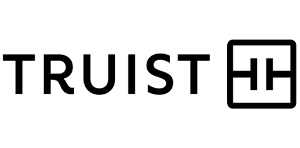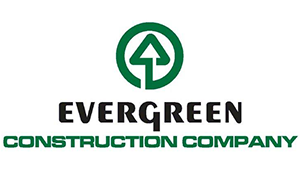Federal Updates
- On Friday, President Biden signed the stopgap funding legislation in order to avert a government shutdown before 9/30/2022 at midnight. The Senate approved the measure on Thursday after Sen. Joe Manchin withdrew his permitting reform package. This will extend existing funding levels (including HUD’s) until December 16th and, among many things, includes $12 million in aid to Ukraine, $1 billion in heating assistance for low-income families, $20 million for the water crisis in Jackson, Mississippi, $1 billion for the Low Income Home Energy Assistance Program, and more than $112 million for federal court security. It also includes a five year reauthorization of the user fee programs for the FDA and allows FEMA to spend billions of dollars through the Disaster Relief fund at a higher rate. After Friday’s vote, members of Congress headed home to campaign ahead of midterm elections and will not return to Washington until after the election.
- On Wednesday, Sen. Elizabeth Warren (D-MA) and Rep. Adriano Espaillat (D-NY) wrote a letter calling on HUD and FEMA to provide an update on the Disaster Assistance and Supportive Housing (DASH) program. DASH is designed to provide longer-term housing assistance and case management to low-income and marginalized disaster survivors. The program is based on the Disaster Housing Assistance program (DHAP), which was created in the aftermath of Hurricane Katrina and has been used by a number of Republican and Democratic administrations since its inception. DASH was originally slated to launch in March, and in June, NLIHC president Diane Yentel expressed her concerns about the stalled implementation in a letter to the Biden administration.
- Follow-up: On Friday, Sen. Warren introduced the “Housing Survivors of Major Disasters Act,” a companion bill to a piece of legislation that Rep. Adriano Espaillat introduced in the House. Key pieces of the bill are that it would 1) expand the use of FEMA assistance and 2) require HUD and FEMA to implement a joint disaster housing assistance program within 60 days of a disaster.
- Beginning October 30, applicants for FHA-insured mortgages can include positive rental payment history in their credit assessment. The change is expected to increase first-time homebuyers’ access to FHA mortgages.
- Similarly, last week Fannie Mae launched its Multifamily Positive Rent Payment Reporting pilot program. Landlords of Fannie Mae multifamily properties can report rent payment history to the 3 major credit bureaus. The program is designed to help renters establish and build credit. If a renter misses a payment, they will be automatically unenrolled from the program to preserve their credit score.
State & Local Community Updates
- The North Carolina Local Government Commission approved a number of housing-related loans at their September 22 meeting. The LGC sits within the State Treasurer’s office and is responsible for overseeing debt and borrowing for local governments and public authorities across the state. This funding is in addition to over $418 M in housing-related loans approved by the LGC during FY22.
- City of Durham ($2.25 million)
- Greensboro Housing Authority ($17 million)
- Inlivian in Mecklenburg County ($35.4 million)
- Raleigh Housing Authority ($12 million)
- Wake County Housing Authority ($125 million)
- The Housing Authority of the City of Greenville announced last week that they received a $2M earmark Federal grant to build an affordable housing development for youth and young adults transitioning out of the foster care system. Retiring Representative G.K. Butterfield (D-NC-1) championed funding for the ARISE project, which will feature 20 apartments with wraparound supports. Community Project Funding, formerly referred to as earmarks, were revamped and restored in the House last year after a more than 10-year ban following controversy. As WUNC reported earlier this year, NC lawmakers requested a relatively small amount of federal earmarked funds in the FY22 budget, accounting for just 2.4% of all earmarked funds.
- Last Tuesday, Asheville city council unanimously approved conditional zoning and a $1.5M loan for the funding for the construction of a LIHTC project for seniors in South Asheville. To help address the need for affordable senior housing in Asheville, 51 existing units at Laurel Wood senior multifamily development will be remodeled and 54 additional units will be constructed on-site. 100% of the apartments will remain affordable for at least 30 years to residents earning between 40-80% AMI. Twelve units will accept Housing Choice Vouchers. The development is owned and managed by Volunteers of America. Construction is set to begin later this fall and is expected to be complete by spring 2024: Affordable housing project approved for Asheville’s elderly population | WLOS
- Chapel Hill’s Town Council met on Wednesday and reviewed 2 plans for housing. The Town’s Inclusionary Zoning Ordinance promotes the development of affordable housing by requiring a certain number of affordable units for every residential development with 5 or more units: Chapel Hill Council reviews 2 housing plans, says one is exactly what the town wants | The Herald-Sun
- Council opened a legislative hearing for a conditional rezoning of 710 North Estes Drive. Lock7 Development wants to build 95 townhomes and condos. The developer has committed to build 12 affordable units on-site and payment-in-lieu for 0.5 units.
- Council reviewed a concept plan for Lullwater Park, a proposed development of 489 apartments and townhomes in northern Chapel Hill. The developer has committed to renting 36 of the units to people earning up to 60% of the Area Median Income and accepting Section 8 and local housing vouchers.
Reports, Events, and Resources
- Event: Harvard Joint Center for Housing Studies, 10/6 @ 11AM ET, Virtual. Housing & Health Equity For Older Adults: Findings From The Covid-19 Recapp Report
- Event: National Low income Housing Coalition – Disaster Housing Recovery Coalition, 10/4 @ 2PM ET, Virtual. Towards Equitable Recovery from Hurricanes Fiona and Ian
- Missing the Mark for North Carolina: 2022-23 State Budget Fails to Address the Many Effects of Inflation | NC Budget & Tax Center
- Home for Good: Strategies to Prevent Eviction and Promote Housing Stability | Enterprise Community Partners
- Eviction and household health and hardships in families with very young children | Pediatrics
- Annual Report on the Economic Impact of the Historic Tax Credit for Fiscal Year 2021 | National Park Service & Rutgers University
- What if doctors could write prescriptions for adequate housing? More than anything else, it might improve a person’s overall health | Milwaukee Journal Sentinel
- Taller towers, fewer homes | The New York Times
- Young and homeless in rural America | The New York Times
- The U.S. is running short of land for housing | The Wall Street Journal
- [Opinion in response to “The U.S. is running short of land for housing”] A church can be part of an affordable-housing solution | The Wall Street Journal
- Rents drop for first time in two years after climbing to records | The Wall Street Journal
- The Bipartisan Infrastructure Law: Implications for affordable housing | NCSHA
- ESG…and T? Shelterforce
- California Gov. Newsome signs laws to boost housing production | PBS
- The housing market correction will be deep, and ugly HousingWire
- Enterprise President and CEO Priscilla Almodovar to become CEO of Fannie Mae | Enterprise Community Partners
- The 50 best places to live: 2022-2023 (#4 Raleigh, #12 Chapel Hill) | Money
- In Charlotte’s housing market, the only sure thing may be unpredictability | Carolina Public Press
- As short-term rentals increase, what’s the effect on affordable housing? | ABC11
- Buncombe County might grow 80,000 by 2045. Is dense development a good idea? | Asheville Citizen-Times
- A living legend’s legacy to affordable housing | The Local Reporter







